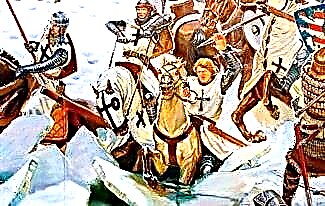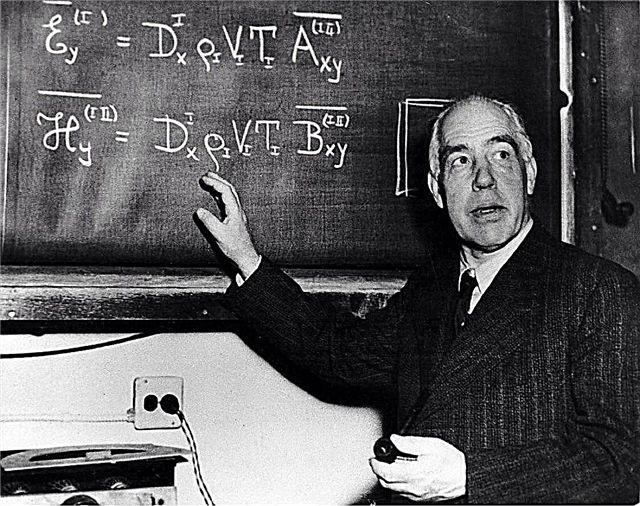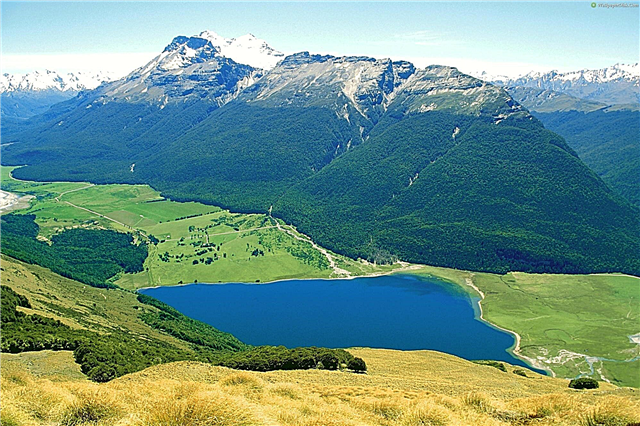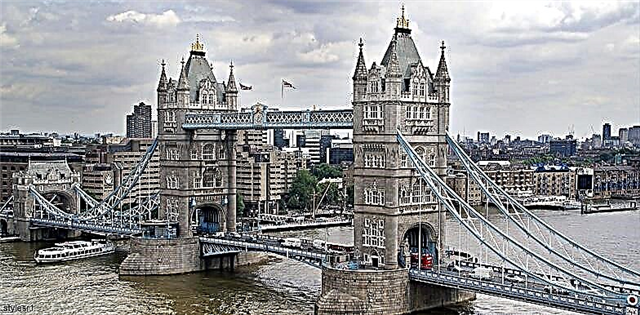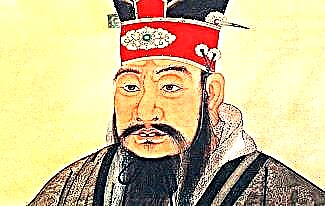Niccolo Machiavelli (1469-1527) - Italian thinker, politician, philosopher, writer and author of military theoretical works. Secretary of the Second Chancellery, in charge of the country's diplomatic relations. One of his most important works is The Sovereign.
There are many interesting facts in the biography of Machiavelli, which we will talk about in this article.
So, here is a short biography of Niccolo Machiavelli.

Machiavelli biography
Niccolo Machiavelli was born on May 3, 1469 in Florence. He grew up and was brought up in the family of lawyer Bernardo di Niccolo and Bartolomei di Stefano. In addition to him, Machiavelli's parents had three more children.
According to Niccolo, his childhood years were spent in poverty. And yet, his parents were able to give him a good education, as a result of which he knew the Italian and Latin classics well, and was also fond of the works of Josephus, Plutarch, Cicero and other authors.
Even in his youth, Machiavelli showed a keen interest in politics. When Savonarola came to power in Florence with his republican convictions, the guy was critical of his political course.
Literature
The life and work of Niccolo fell on the turbulent Renaissance. At this time, the Pope had a large army, and large Italian cities were under the rule of different countries. At the same time, one power was replaced by another, as a result of which the state was torn apart by chaos and armed clashes.
In 1494, Machiavelli joined the Second Chancellery of the Florentine Republic. Four years later, he was elected to the Council of Eighty, which directed diplomacy and military affairs.
At the same time, Niccolo took the positions of secretary and ambassador, enjoying great authority after the execution of Savonarola. From 1502 he closely followed the political successes of Cesare Borgia, who sought to create his own state in central Italy.
And although the Borgia could not achieve his goal, Machiavelli spoke enthusiastically about his actions. As a tyrannical and tough politician, Cesare found benefits in all circumstances. That is why Niccolo was sympathetic to his radical actions.

According to some surviving references, during a year of close communication with Cesare Borgia, Machiavelli had the idea of running the state. Therefore, it was then that he allegedly began to develop his vision of the development of the state, set out in his work "The Sovereign".
In this treatise, the author described the methods of seizing power and rule, as well as a number of skills required for an ideal ruler. An interesting fact is that the book was published only 5 years after the death of Machiavelli. As a result, "The Sovereign" became a fundamental work for its era, with regard to the systematization of information about the state and its administration.
During the Renaissance, natural philosophy gained particular popularity. In this regard, new teachings began to appear, which fundamentally differed from the views and traditions of the Middle Ages. Prominent thinkers such as Leonardo da Vinci, Copernicus and Cusan presented many new ideas.
From that moment on, God began to identify with nature. Political feuds and scientific discoveries seriously influenced the subsequent work of Niccolò Machiavelli.
In 1513 the diplomat was arrested on charges of complicity in a conspiracy against the Medici. This led to the fact that he was tortured on the rack. He denied any involvement in the conspiracy, but was still sentenced to death.
It was only thanks to the amnesty that Machiavelli was released. After that, he fled from Florence and began writing new works. Subsequent works brought him the fame of a talented political philosopher.
However, the man wrote not only about politics. He is the author of several plays, as well as the book On the Art of War. In the last treatise, he presented a detailed analysis of major wars in world history, and also analyzed the different composition of the troops.

Niccolo Machiavelli declared the unreliability of mercenary formations, extolling the military achievements of the Romans. In 1520 he returned to his homeland, receiving the post of historiographer.
In his writings, the writer reflected on the meaning of life, on the role of the personality of the ruler, on universal military service, etc. He divided all state forms of government into 6 types - 3 bad (oligarchy, tyranny, anarchy) and 3 good (monarchy, democracy, aristocracy).
In 1559, the works of Niccolo Machiavelli were included by Pope Paul 4 in the Index of Forbidden Books. The Italian owns many aphorisms, including the following:
- If you really hit, then so as not to fear revenge.
- Whoever is a good friend himself has good friends.
- The winner has many friends, and only the loser have real friends.
- The best of all fortresses for a ruler is not to be hated by the people: whatever fortresses are built, they will not save if you are hated by the people.
- People love as they themselves want, but they are afraid as the Emperor wants.
Personal life
Machiavelli's wife was Marietta Di Luigi Corsini, who came from a poor family. This union was concluded by calculation, and was aimed primarily at improving the well-being of both families.
Nevertheless, the couple were able to find a common language and learn all the delights of a happy marriage. In total, the couple had 5 children. Biographers of the thinker say that during his diplomatic trips, Niccolo often had romantic relationships with various girls.
Death
Throughout his life, the man dreamed of the prosperity of Florence, but this never happened. In 1527 the Spanish army sacked Rome, and the newly formed government no longer needed Niccolo.
These and other events negatively affected the health of the philosopher. Niccolo Machiavelli died on June 21, 1527 at the age of 58. The exact place of his burial is still unknown. However, in the “Holy Cross” church in Florence, you can see a tombstone in memory of Machiavelli.
Photo by Niccolo Machiavelli









